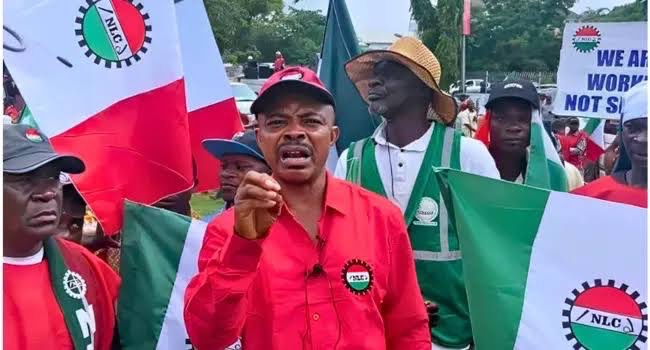May Day: Ajaero Raises Alarm Over Shrinking Civic Space, Urges Legal Reforms to Safeguard Democracy

President of the Nigeria Labour Congress (NLC), Comrade Joe Ajaero, has raised alarm over what he described as the increasing repression of civic space in Nigeria, warning that such suppression poses a grave threat to the nation’s democratic foundation.

Speaking during the 2025 Pre-May Day Lecture held at the NLC Headquarters in Abuja on Wednesday, Ajaero lamented that both workers and ordinary Nigerians are being denied their right to free expression, as security agencies increasingly move to stifle dissent and protest.


Themed “Reclaiming the Civic Space in the Midst of Economic Hardship,” the lecture provided a platform for labour leaders and scholars to call for decisive action in reclaiming civil liberties amid worsening economic conditions.
“The civic space is being compressed, just last week in Port Harcourt, protesters were stopped by the police. These days, protests are being fought. People are not allowed to freely express themselves. Even when we tried to protest the hardship and the issue of minimum wage, they tried to stop us,” Ajaero said.

According to him, the use of state apparatus to suppress protests and civic activism undermines democratic ideals and could backfire even on current political actors.
“If the civic space had been closed back then, none of those in the National Assembly or government today would be there. Many of them were unknown during the military era when we fought for the return of democracy,” he stated.
Ajaero stressed that it is the responsibility of the labour movement and civil society to resist the erosion of civic freedoms and continue to fight for an open, participatory space for Nigerians.
Also speaking at the event, guest lecturer and Professor of International Law, Sir Christopher Chukwuma, echoed Ajaero’s concerns, calling for urgent policy reforms to reverse the trend.
Chukwuma identified restrictive laws such as the Cybercrime Act, the Public Order Act, and provisions of the Companies and Allied Matters Act (CAMA) as tools being used to criminalise civic engagement and silence dissent.
“There is a need to amend these laws,” he said. “The NLC can champion reforms that prevent excessive force against civic actors and advocate for greater transparency and oversight over security agencies—particularly when dealing with human rights defenders.”
He warned that Nigeria’s democracy is being threatened by corruption, impunity, and the increasing marginalization of civic voices. “We are seeing shrinking freedoms—peaceful protests are crushed, media organisations are harassed, access to justice is limited, and activists are insulted or intimidated,” he added.
Chukwuma, however, expressed optimism that despite economic hardship and political pressure, Nigerian workers and civil society actors still have a window of opportunity to reclaim their space.
He concluded by calling for broader citizen participation in governance, suggesting that mechanisms such as town hall meetings, inter-agency collaboration, and greater civil society engagement are essential to strengthening democracy and restoring civic dignity.

